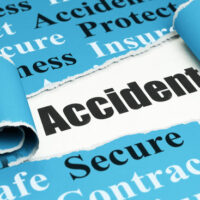Can Property Owners be Held Responsible for Accidents that Occur on Adjacent Roads?

We’ve all had a neighbor who refused to trim overhanging branches or otherwise care for their yard. While this can be an annoying habit and create an eyesore in the neighborhood, it can actually have much more dangerous consequences when the trees or foliage create a blind spot for drivers on an adjacent road. In these cases, the third party property owner will likely bear a portion of the responsibility for the accident, so if you were involved in an accident that was caused by a private land owner’s failure to maintain their property, it is critical to speak with an experienced car accident attorney who can ensure that all negligent parties are held responsible.
Residential Property Owners
One of the most common scenarios in which a third party property owner is held liable for a portion of a car accident victim’s damages is when the crash was at least partly the result of the owner’s failure to remove overhanging foliage that caused a blind spot. In these situations, the law imposes a duty upon property owners to take reasonable measures to ensure that their landscaping does not create a dangerous condition for motorists traveling on adjacent roads. However, before a property owner can be held liable for damages, the injured party will need to conduct a thorough investigation to determine:
- What kinds of trees, plants, and shrubbery surrounded the area;
- Whether any of the foliage came near or was overhanging the roadway;
- Whether the foliage extended past the property line;
- Whether the foliage actually blocked the view of those driving along the adjacent road; and
- How long the foliage had been in that state.
The answers to these questions will help determine whether it was foreseeable that the trees or foliage could cause a dangerous condition, such as a blind spot and whether that particular landowner actually owed a duty of care to motorists. Generally, homeowners can grow whatever they like on their property and can weed, trim, or maintain it as they please. There is an exception, however, when trees, plants, shrubs, and bushes extend past the boundary of their property. In these cases, Florida courts have regularly held that property owners owe a duty to keep their foliage from entering the public’s right of way.
Commercial Property Owners
The same duty to keep their landscaping from creating a traffic hazard on adjacent roads applies equally to commercial property owners. In these cases, courts use a foreseeable zone of risk analysis, in which they assess whether the foliage posed a general threat of harm to:
- Patrons;
- Pedestrians; and
- Motorists using adjacent streets.
If there is a foreseeable risk that the state of the foliage could cause these dangers, then the business owner can be held liable for damages.
Call a Car Accident Attorney Today for Help with Your Own Case
Cases involving third party landowners are decided on a case by case basis, so if you were injured because a property owner’s landscaping blocked your vision, it is critical to consult with an attorney who can assess the facts of your case. Please call Boone & Davis in Fort Lauderdale at 954-566-9919 to speak with an experienced car accident attorney today.
Resource:
scholar.google.com/scholar_case?case=12014233002162863921&q=Williams+v.+Davis,+974+So.+2d+1052+(Fla.+2007).&hl=en&as_sdt=6,44
